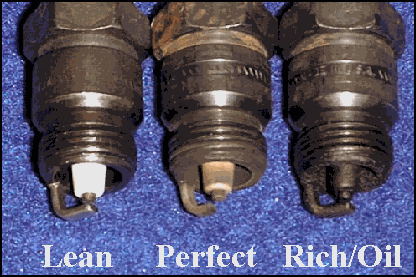Buying a new-to-you motor is something that most of us do at some point to enjoy pushing our tins. Do you know what to look for? What are some of the signs of a bad motor? Here are 5 tips for buying a used outboard. These tips are just the basics, but if followed will allow you to make a better judgement if you should buy or pass on a particular outboard. The old adage says “If it’s too good to be true, it probably is”, just be wary of super deals on used outboards.
1, Self evaluation
Step back for a second and ask yourself some questions. Are you the handy type? Do you learn easily? Do you even have the desire and time to spend working on an outboard? Are you the type that has very little recreational time and would rather pay a professional, or buy a new motor to have a warranty to just go and get out there? These are valid considerations because some of us can’t use anything more than a butter knife, while others could rebuild a motor with a blindfold. Buying a used outboard is not a “set it and forget it” purchase, Things need to be done maintenance wise for your own peace of mind before the maiden voyage. Sure you can buy it and then bring it to a Pro to service, that is always an option.
2, Visual Inspection
Before even thinking of popping off the cowl, take a few minutes to do a visual inspection of the outside. Look at the Cowl, how does it look? Suspiciously brand new? If it’s a used outboard, it should not be in showroom condition. It can be really nice, but there will be indication of use. Recently painted again? Why? These are the kind of things that should be running across your mind while doing a visual. Look at the shaft and the prop. How does the prop look? Beat up? Brand new? Why? How does the cylinder head look? Is it discolored? It should not be. Is it freshly painted? Why? Have a rag handy and loosen the drain plug on the lower unit. What should come out is a free-flowing, clean,black looking oil. If it is cloudy, then that is an indication of a seal problem.
Ask the owner when was the last time they changed the water pump. If you buy the outboard, change the water pump anyway. These questions will give you a slight indication of how the owner took care of the motor. Unscrew the spark plugs and do a visual on them. Are they oily? Do you see metal shavings? Are they dark, indicating that the motor runs rich, or are they light, indicating that the motor runs lean? Below is an example of what the spark plugs should look like. The picture is courtesy of a google images search.
3, Compression Test
This is one of the more if not most important things to check before dropping serious coin on an outboard. Most things can be fixed with little money or elbow grease. Bad compression can be very costly. A basic google search, a few Youtube videos, and input from the awesome members of the TinBoats.net forum, always say that the numbers for each cylinder should be no more than 10 PSI apart. Get yourself a compression tester for around $25, and make sure you check each cylinder. Here is a simple Youtube video on testing compression on an outboard motor.
4, Test run
Now that you have given it a once over and have checked the compression, it’s time for a test run. If you can take it out on the water that would be great, but a simple test on a stand in a barrel can work too. How does it start? One pull or a few? If its electric, does it start up right away? How does the motor idle? Does it get smooth after a few minutes when it warms up? While running, how does the motor shift? It should shift fairly smooth.
5, Be a Detective
This is your money and investment. Ask questions and don’t be afraid to get the answers you want. You can always walk away and find another outboard. Ask the owner why they are selling? Did they upgrade? Are they quitting the sport? Ask the owner if the motor has had any issues now or in the past. When was it last run? Last maintenance? No one sells a perfect motor without a reason, so try to find out why. Take a few minutes to watch this Youtube video, it gives you a better understanding on what to look for.
I hope you found this article a little helpful and as always please leave any comments below if you think I missed anything that should be mentioned. I want to thank the awesome members of our forum because they helped me with the tips in our dedicated motor forum where many questions have been answered. A bonus to being a member of the forum is that you can get access to motor manuals to help you maintain your outboard. Be sure to check out the forum for all happenings here.

That is some really good information about used outboard motors. My father loves fishing and he has been thinking about getting a boat with that type of motor. So, I liked that you talked about doing a compression test of the motor. That does seem like it would help him find a good safe motor.